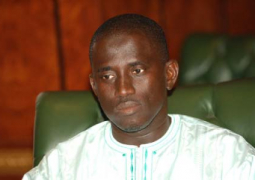No
one doubts that Africa’s population will grow meteorically in the next decades.
The
continent is expected to go from being home to 15 percent of the world’s
population at present to 25 percent of the global population in 2050.
Nevertheless, opinions differ with regard to Africa’s projected growth.
In
one camp, Africa has its proponents. From that perspective, Africa is “rising,”
“emerging,” and “on the move,” and Africa’s population growth could spell
opportunity. In the other camp, analysts tracking African demographics lament
the lack of a substantive drop in fertility in east, west, and central Africa.
These observers apprehensively speak of Africa’s future infrastructure needs,
where the prospects of supporting massive populations look grim.
As
is often the case, neither side is entirely right or wrong. Africa’s most
daunting problem is also an enormous opportunity. Navigating Africa’s
population boom is not going to be easy, but it’s also not impossible.
Here
are three key perspectives policymakers and the private sector need to keep in
mind when thinking about Africa’s dramatic population rise over the course of
this century.
1.
Africa’s growing population is not aging.
Whether
that’s a good thing or a bad thing depends on our creation of a framework for
employing Africa’s youthful population.
There
is no doubt that Africa needs to address its high fertility rates — though it’s
worth noting that northern and southern Africa have already made substantial
success. Several countries in Central Africa (often in collaboration with NGO
and IDAs) have at different times introduced programs to rein in this
population growth. However, these initiatives have clearly not resulted in a
significant reduction in population growth rates.
2.
To expand employment for a larger population, Africa needs an education revolution.
It’s
true that access to education in Africa has expanded dramatically, but our next
goal is to make sure that that education system is making African youth
competitive. Current development of the African education system is very
committed to the classic primary-secondary-university model. However, just as
developed countries are realizing that not everyone should go to university,
Africa needs to make sure that an educational “Plan B” is available.
In
other words, Africa needs to expand vocational studies, answering the question
of how people can forward themselves outside of the traditional educational
track. It’s fascinating to examine the current dearth of vocational training
from the perspective of Africa’s current problem with infrastructure maintenance:
Simply put, we have the engineers and builders to create the roads and
buildings in the first place, but we don’t have the vocational services
employees to keep those roads and buildings running.
3.
Africa’s population is a market.
This
is an insight that has particular significance in the present day.
International
investors looking into Africa and extracting its resources are overlooking the
huge consumer base sitting in Africa. Telecommunications is an example of what
happens when that consumer base is not overlooked: the telecommunications
sector has displayed very aggressive market penetration in both urban and rural
settings, and in response, Africans have shown themselves willing to consume.
Mobile
phones prove that Africans can afford to spend if products are made available
and if products are made useful. Investors should think about not only tapping
into Africa’s natural resources, but also adding value to those resources
domestically. Such a forward-thinking perspective on Africa’s burgeoning
consumer class will have resounding investment consequences.
Framing
Africa’s population growth with these three considerations, we find that with
employment, the right education system, and private sector recognition of
Africa’s market potential, concerns about Africa’s population growth can be
attenuated.
Unfortunately,
all this takes a proactive, long-term commitment on the part of both the public
and private sectors.
Africa’s
population explosion will be a problem, but with the right long-term vision, it
can also be an opportunity. Explore the tremendous opportunities of investing
in Africa in Episode 4 of IGD’s video series “Opportunities in Africa —
Investing across sectors.”
Guest editorial
“If
we don’t halt population growth with justice and compassion, it will be done
for us by nature, brutally and without pity- and will leave a ravaged world”
Nobel
Laureate Dr. Henry W. Kendall
Read Other Articles In Article (Archive)
Alleged thief discharged and acquitted
Sep 19, 2011, 2:21 PM



